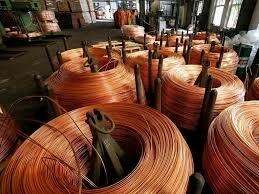 © Reuters. FILE PHOTO: An oil pump is seen operating in the Permian Basin near Midland
© Reuters. FILE PHOTO: An oil pump is seen operating in the Permian Basin near MidlandBy Shadia Nasralla, Ernest Scheyder and Dmitry Zhdannikov
VIENNA (Reuters) – OPEC, which has lost Chinese market share to U.S. oil producers, should in theory view a tariff spat between Beijing and Washington as a boon.
But while OPEC can sell more oil to China as a result of import tariffs on , in the long term the trade dispute could hit economic growth and oil demand, OPEC officials and oil executives said.
“In the long term, this will have a negative effect on the global economy even if, in the short term, it might be positive for other non-U.S. producers,” Austrian oil company OMV’s chief executive Rainer Seele said on the sidelines of an OPEC seminar in Vienna. “In the long-term, (U.S. President Donald) Trump’s policies will weigh on the global economy.”
A trade spat between the U.S. and China escalated last week with China threatening to slap a 25 percent tariff on $50 billion worth of U.S. goods, including oil and refined products.
“Trade wars (are) not good news for the world economy,” Total’s chief executive Patrick Pouyanne told the seminar.
Pouyanne said it was also not good news to see tariffs on steel and aluminum which could impact the costs of oil company investments. “So I think all that is part of what OPEC ministers should keep in mind.”
Oil executives are meeting OPEC ministers this week ahead of an OPEC gathering on Friday, which is set to decide on new output policies.
U.S. President Donald Trump has called on OPEC to raise production to cool down oil prices.
CHINESE DEMAND
China has been the largest Asian buyer of U.S. crude with U.S. exports booming thanks to the country’s shale revolution.
U.S. oil exports to China exceed 300,000 barrels per day and compete with long-term OPEC suppliers such as African producers of light crude including Nigeria, Angola and Algeria.
“For sure, it is good news for Algerian crude,” an Algerian oil source said when asked about the impact of the U.S./China trade spat.
“New tariffs will support flow from others sources starting from the fourth quarter. It is also a period of robust demand in China,” the source said asking not to be named because he is not authorized to speak to the press.
An OPEC source said he believed Chinese buyers would increase purchases of light crude grades from other OPEC members such as Saudi Arabia, Kuwait, Iraq, the UAE and even Iran.
“But in the long run … it is not helpful. It is destructive for the global economy,” the OPEC source said, referring to the U.S./China dispute.
Majid Jafar, chief executive of UAE-based Crescent Petroleum, said: “Beyond short-term targeting of U.S. oil exports, oil producers need to be concerned about how potential major disruption to the global trade and economic systems could harm demand over the longer term.”
Jamie Webster, analyst from Boston Consulting Group, also said that even though Chinese tariffs represented an opportunity for OPEC to sell more crude they also created more oversupply in the United States, potentially pushing oil prices down.
BP’s chief executive Bob Dudley said he did not believe the trade spat could tilt the global economy into a recession.
“I think when you put sanctions and tariffs … the world will respond and figure out ways around it and I think the demand for energy will remain.”
Scott Sheffield, executive chairman of U.S. oil producer Pioneer, said he has not discussed new tariffs either with the White House or OPEC and said he believed U.S. crude exports were set to grow to 4.0-4.5 million bpd in next several years from the current 2.6 million bpd.
“Hopefully we can find another home for that oil,” he said adding that Singapore, South Korea, Japan and the European Union could mop up what China does not take.
Source: Investing.com




























